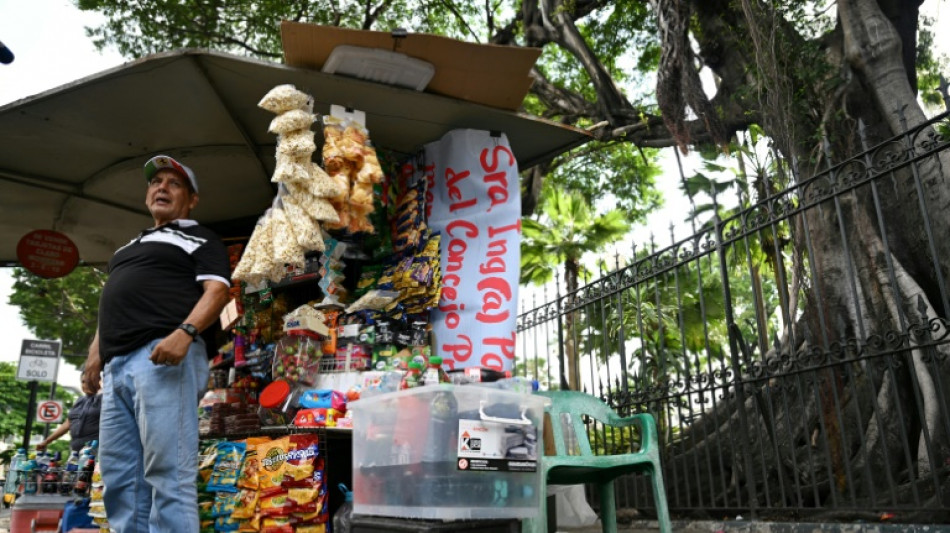
-
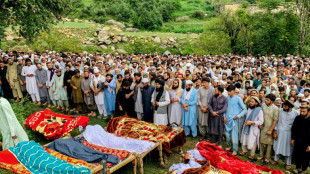 Deadly monsoon rains lash Pakistan, killing dozens
Deadly monsoon rains lash Pakistan, killing dozens
-
Frank urges 'real' Spurs fans to back Tel after racist abuse
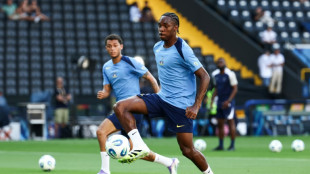
-
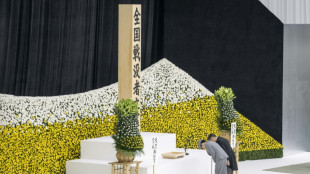 Japan's emperor expresses 'deep remorse' 80 years after WWII
Japan's emperor expresses 'deep remorse' 80 years after WWII
-
Chelsea boss Maresca eager to sign new defender as Colwill cover

-
 Liverpool target Isak controls his Newcastle future: Howe
Liverpool target Isak controls his Newcastle future: Howe
-
New-look Liverpool kick off Premier League season after spending spree

-
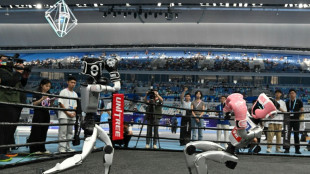 Football and falls as first humanoid robot games launch in China
Football and falls as first humanoid robot games launch in China
-
'Like hell': Indoor heat overwhelms Saudi Arabia's cooks, bakers
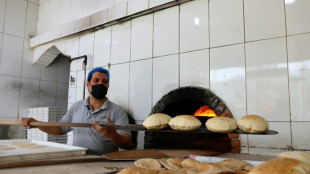
-
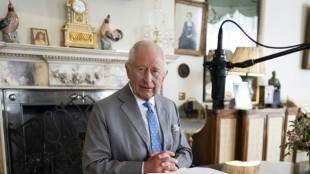 On VJ day, king pays tribute to UK veterans, warns of war's 'true cost'
On VJ day, king pays tribute to UK veterans, warns of war's 'true cost'
-
Stocks mostly higher before US-Russia summit
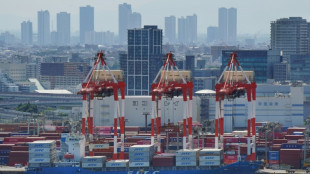
-
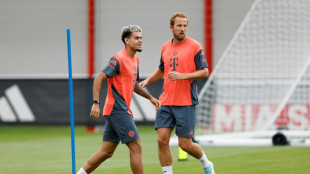 Bayern's Bundesliga crown up for grabs after rocky summer
Bayern's Bundesliga crown up for grabs after rocky summer
-
Arsenal face revamped Man Utd as new-look Liverpool open Premier League season

-
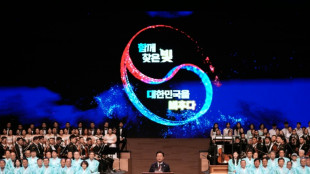 South Korea president vows to build 'military trust' with North
South Korea president vows to build 'military trust' with North
-
'Never again': Indigenous Bolivians sour on socialism
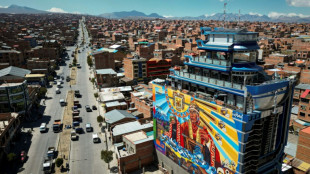
-
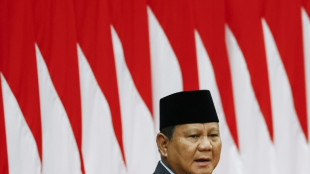 Indonesia's president touts economy, social welfare drive
Indonesia's president touts economy, social welfare drive
-
World plastic pollution treaty talks collapse with no deal
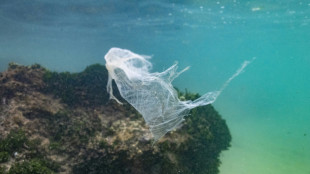
-
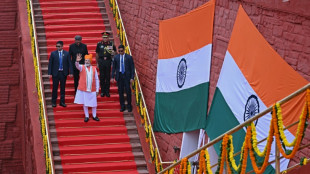 Facing US tariffs, India's Modi vows self-reliance
Facing US tariffs, India's Modi vows self-reliance
-
Trump to meet Putin in high-stakes Alaska summit
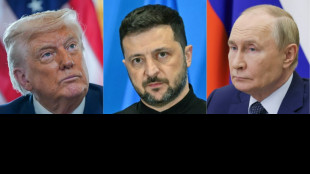
-
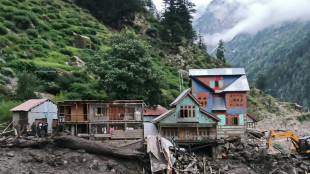 Indian rescuers scour debris after 60 killed in flood
Indian rescuers scour debris after 60 killed in flood
-
Ivory Coast village reburies relatives as rising sea engulfs cemetery
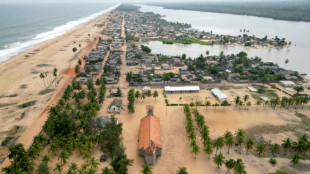
-
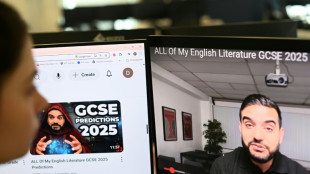 Stressed UK teens seek influencers' help for exams success
Stressed UK teens seek influencers' help for exams success
-
National Guard deploys 800 personnel for DC mission, says Pentagon
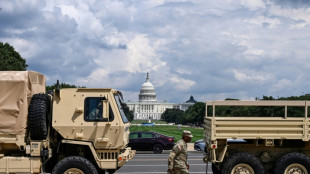
-
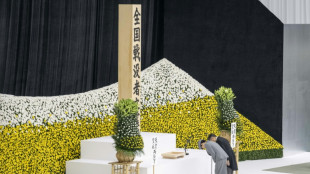 Japan emperor expresses 'deep remorse' 80 years after WWII
Japan emperor expresses 'deep remorse' 80 years after WWII
-
With waters at 32C, Mediterranean tropicalisation shifts into high gear
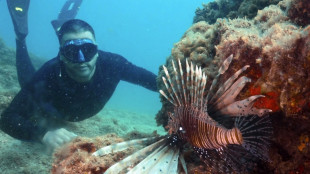
-
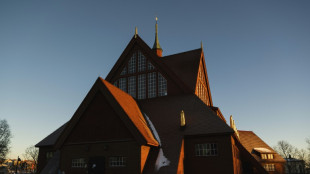 Historic Swedish church being moved as giant mine casts growing shadow
Historic Swedish church being moved as giant mine casts growing shadow
-
Malawi's restless youth challenged to vote in September polls
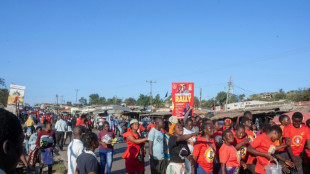
-
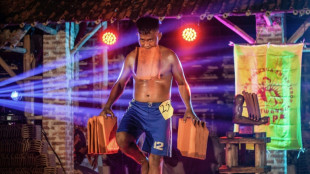 Indonesian roof tilers flex muscles to keep local industry alive
Indonesian roof tilers flex muscles to keep local industry alive
-
World's first humanoid robot games begin in China
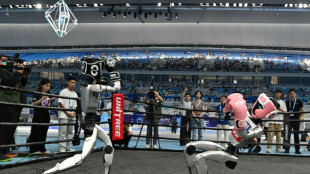
-
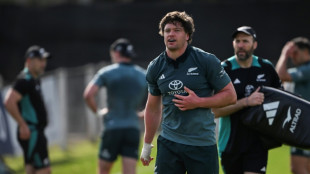 Scott Barrett returns to lead All Blacks against Argentina
Scott Barrett returns to lead All Blacks against Argentina
-
Five things to know about Nigeria's oil sector
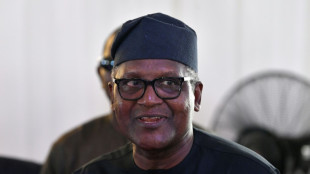
-
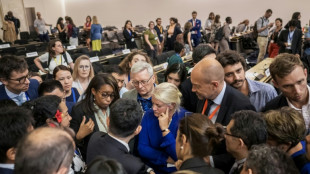 New compromise but still no deal at plastic pollution talks
New compromise but still no deal at plastic pollution talks
-
France's Cernousek seizes lead at LPGA Portland Classic
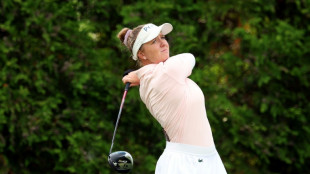
-
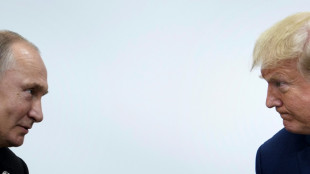 Putin-Trump summit: What each side wants
Putin-Trump summit: What each side wants
-
Desperate Myanmar villagers scavenge for food as hunger bites
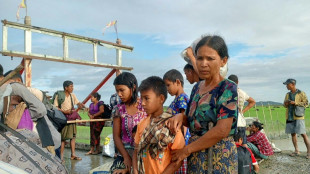
-
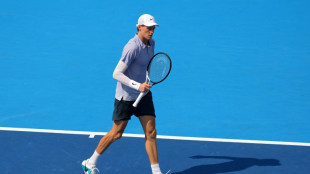 Qualifier Atmane stuns Rune to set up Sinner semi-final in Cincinnati
Qualifier Atmane stuns Rune to set up Sinner semi-final in Cincinnati
-
Hong Kong tycoon Jimmy Lai's security trial delayed over health concerns
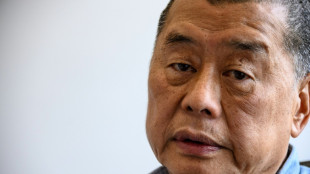
-
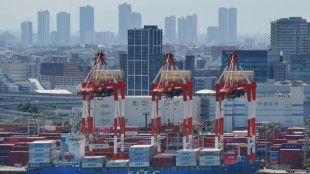 Asia stocks mixed before US-Russia summit
Asia stocks mixed before US-Russia summit
-
Putin hails North Korean troops as 'heroic' in letter to Kim
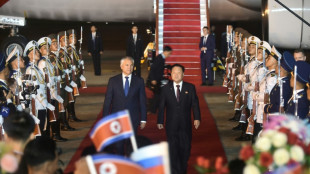
-
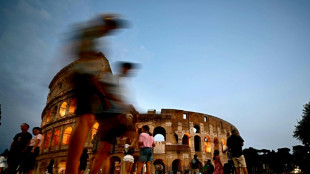 Fleeing the heat, tourists explore Rome at night, underground
Fleeing the heat, tourists explore Rome at night, underground
-
Online cockfighting thrives in Philippines despite ban and murders
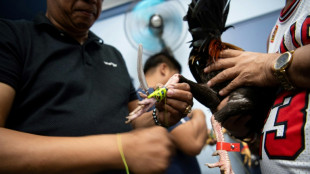
-
 Keeping cool with colours -- Vienna museum paints asphalt to fight heat
Keeping cool with colours -- Vienna museum paints asphalt to fight heat
-
Raising the bar: Nepal's emerging cocktail culture
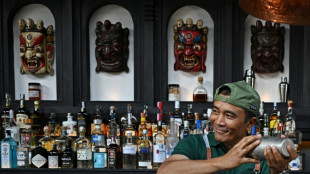
-
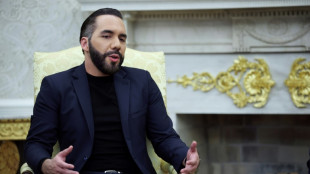 El Salvador plans 600 mass trials for suspected gang members
El Salvador plans 600 mass trials for suspected gang members
-
Trump's tariffs drown Brazil's fish industry
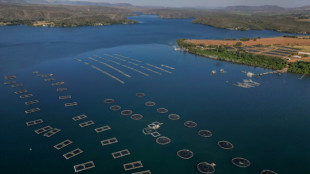
-
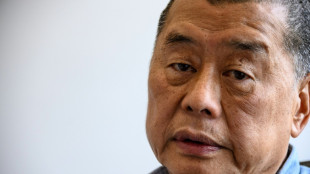 Hong Kong tycoon Jimmy Lai's collusion trial resumes after delay
Hong Kong tycoon Jimmy Lai's collusion trial resumes after delay
-
Britain's Princess Anne turns 75 with typically minimal fuss
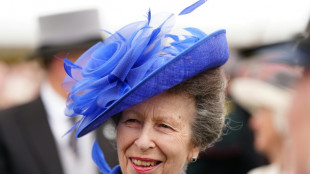
-
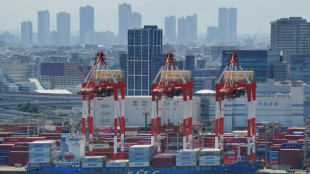 Japan posts modest growth despite US tariffs
Japan posts modest growth despite US tariffs
-
Rugby Championship kicks off amid uncertain future
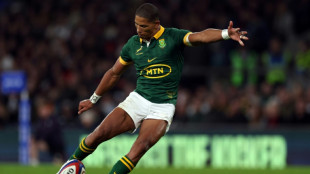
-
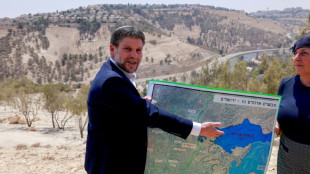 Israeli far-right minister backs contentious West Bank settlement plan
Israeli far-right minister backs contentious West Bank settlement plan
-
Hot putter carries MacIntyre to three-shot lead at BMW Championship
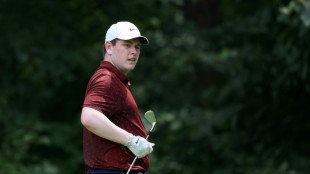

Ecuador's presidential hopefuls face toxic brew of crime, unemployment
Cartel violence is hollowing out Ecuador's largest city Guayaquil, scaring away tourists, pummelling the economy and leaving whoever wins Sunday's presidential election with a gargantuan problem.
In picturesque and once-bustling Seminary Park, these days iguanas almost outnumber visitors.
"In the afternoon it feels like a cemetery," said Juan Carlos Pesantes who has sold sweets and drinks from a park-side kiosk for 16 years.
"There are no tourists left."
Pesantes has watched as several businesses, including a once popular hotel, close down around him.
In three years, his income has halved and Guayaquil has been transformed from the beating heart of Ecuador's economy into one of the most violent cities in Latin America.
Some months, the country averages more than one murder an hour.
The park is now locked by 18:00 instead of 22:00, just in case any visitors are tempted to hang around after dark.
Against this grim backdrop, the economy fell into recession late last year.
But insecurity is not the only issue ailing Ecuador's economy.
Either incumbent president Daniel Noboa or his leftist rival Luisa Gonzalez will have to reckon with deep social inequality, unemployment, an energy crisis, low rates of investment, groaning public finances and low oil revenues.
Pesantes is "undecided" about which one of the two neck-and-neck rivals to vote for.
"There is no confidence" in them, he said.
- Going out is risky -
Ecuador's woes stem from a boom in Colombian cocaine production and the attractiveness of its ports for shipping the drug to lucrative markets in Asia, Europe and the United States.
The bloodshed has increased as a multitude of gangs, cartels and mafias vie to control routes.
The surge in gang activity has had a direct impact on normal economic activity.
Violence is "affecting consumption. The population has fewer possibilities to go out on the street, to a restaurant, to make a purchase, it's risky," said Alberto Acosta Burneo, an economic analyst at the Spurrier group.
In a poor neighborhood of Guayaquil, Paola Valdivieso, a 54-year-old salon worker, talks about the "fear, the dread" she feels when she has to walk "looking in all directions."
Bananas, one of Ecuador's main export products -- along with oil, cocoa, shrimp, and flowers -- also suffer from organized crime.
"We are victims of drug trafficking," Richard Salazar, director of a banana growers' association tells AFP.
"We are victims of crime and organized crime with extortions," and despite checks, drug traffickers use large shipments of fruit to move cocaine, he explained.
In a depressed economy, unemployment and underemployment affect almost a quarter of the population and one in three are poor, according to official figures.
There is "a lot of informality" in employment, with poorly paid and precarious jobs, Acosta Burneo said.
Septuagenarian retiree Gerardo Ortiz explained he can just about "subsist" on his $280 a month pension as he jokingly pointed to his "car" -- in reality a rusty bicycle leaning against a tree.
With cash tight and security poor, foreign investors that once flocked to dollarized Ecuador have stayed away.
The lack of investment "is reflected in an economy that does not grow as it should," according to Acosta Burneo.
In 2023 and 2024, a lack of investment in the power sector and a serious drought caused power outages that lasted up to 14 hours a day.
- No easy answers -
In response to this multi-headed economic crisis, the presidential candidates propose very different solutions.
"Gonzalez's plan is to bring a return of the strategic state" through infrastructure development and investments in public services, according to Christophe Ventura, a Latin America specialist at France's Institute for International and Strategic Affairs (IRIS).
The leftist candidate advocates for a tax system that imposes a higher burden on the private sector and plans to reduce value-added tax, which Noboa increased from 12 percent to 15 percent.
Noboa has backed tough security measures and traditional neoliberal economic policies -- negotiating a trade agreement with Canada to boost extractive industries.
K.AbuDahab--SF-PST
